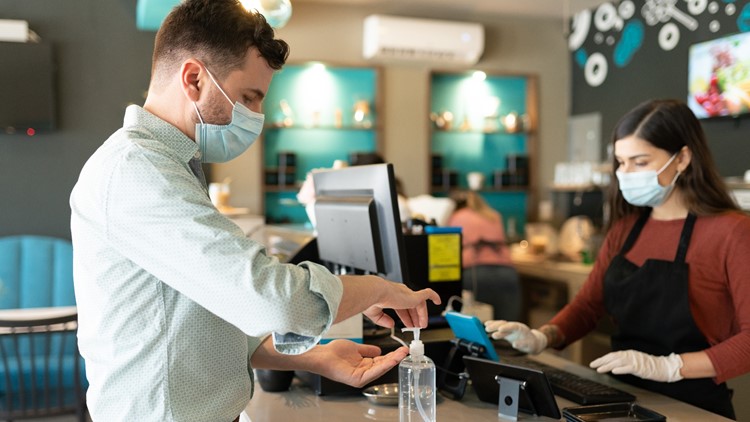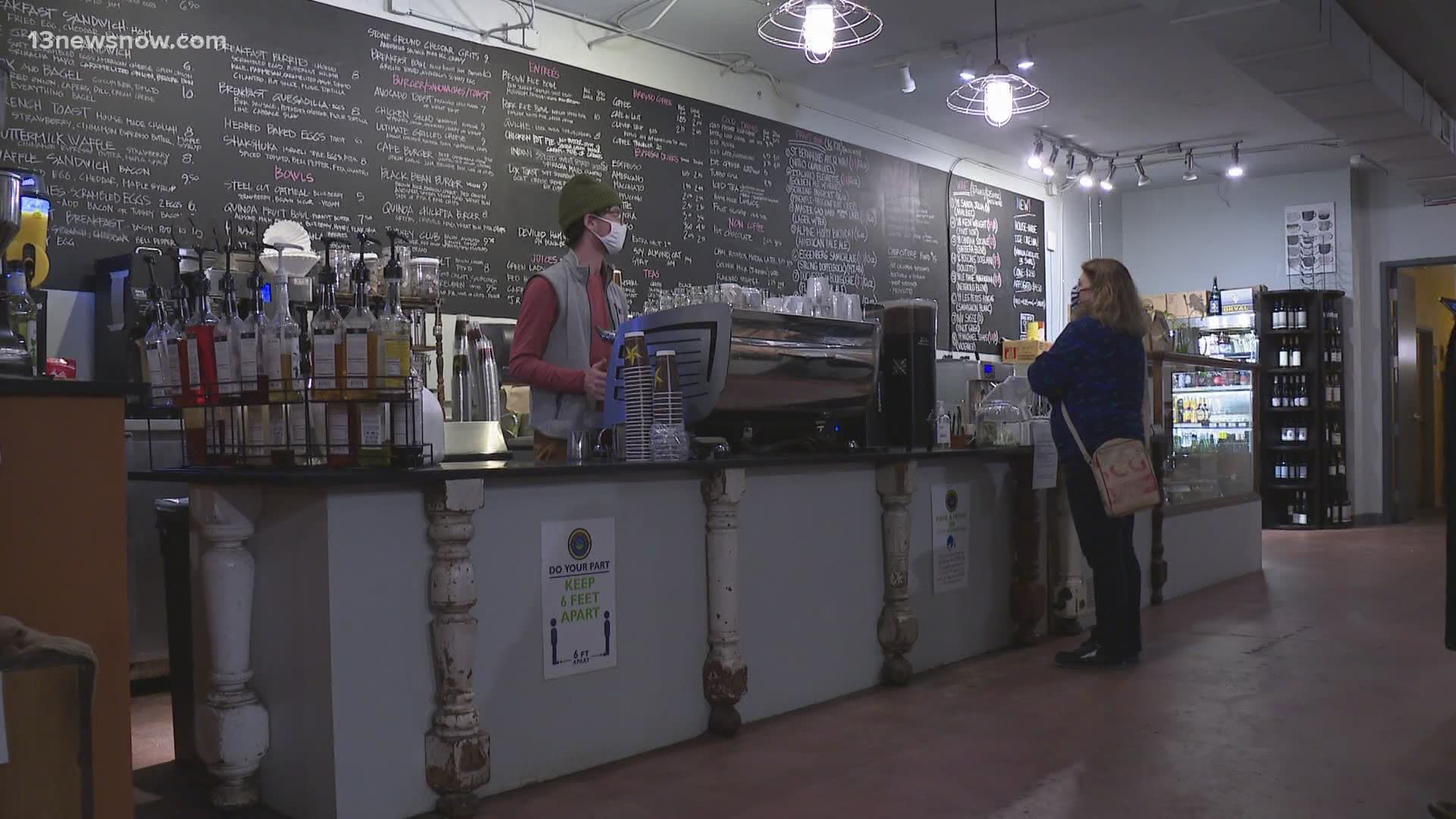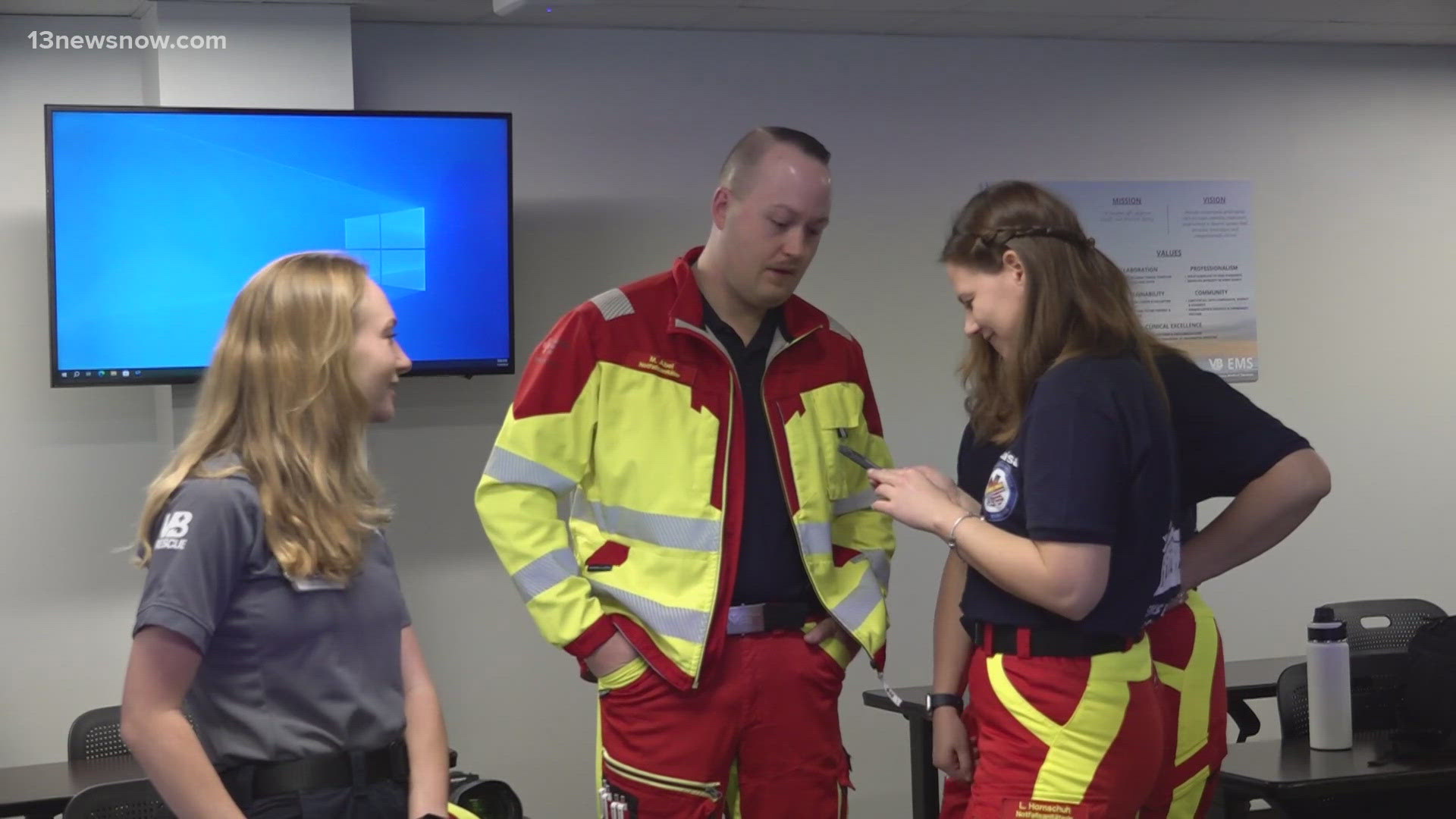BRIDGEWATER, Va. — When snow fell Sunday, Tommy Urglavitch was reminded of his former home in Philadelphia.
Urglavitch also thought back to such cold days with customers packed inside the Harrisonburg and Bridgewater locations of his eateries, Urgie's Cheesesteaks, which he opened with his brother, Steven.
"This is the sort of thing we'd love to have had today," Urglavitch said of Sunday's wintry windfall of snow.
But the potential for the spread of COVID-19 is too great, he said.
"We've had a lot of family members in the Philadelphia area who have had (COVID) and one was hospitalized with it for 10 days, so we understand the severity of this," Urglavitch said.
Gov. Ralph Northam announced an extension to Executive Order 72 until the end of February as virus cases continue to trend upward in the commonwealth.
The action included continuing restrictions on restaurants and bars, such as cutting off the sale of alcohol at 10 p.m., closure by midnight, and capacity reductions.
The hospitality sector, including restaurants and hotels, has been hit hardest by the pandemic recession. This has also impacted localities, including Harrisonburg and Rockingham County, which use taxes on such businesses to generate revenue.
An estimated one in six American restaurants has closed since the beginning of the pandemic, according to a Dec. 7 statement from the National Restaurant Association.
The national industry lobbying group also conducted a survey of 6,000 eatery owners and 250 supply chain firms between Nov. 17 and 30.
The survey results said "87% of full-service restaurants, independent, chain, and franchise, report an average 36% drop in sales revenue. For an industry with an average profit margin of 5%-6%, this is simply unsustainable."
Like other restaurant owners, Urglavitch knew winter's coming would inevitably decrease people going out at a time when consumer confidence is already low.
"We are most certainly looking towards springtime, especially in Bridgewater, where we have a much larger outdoor area," Urglavitch said.
Consumer confidence dropped for the second month in a row, even as vaccines are being distributed, according to data from the Conference Board, a nonprofit business research organization.
Pre-COVID, Finnigan's Cove in downtown Harrisonburg would be open until 2 a.m., according to owner Donna Finnigan. In its final hours of operation daily, the bar and restaurant would be mostly full of workers clocking out from downtown businesses around 10 or 11 p.m., many from other restaurants.
She said regulations barring the sale of alcohol after 10 p.m. limit business at the bar even though the business is allowed to stay open until midnight.
"What are people going to do? Sit here and drink Pepsi?" Finnigan said.
Finnigan said the standards are also having unintended consequences and driving case numbers up.
She said students and young people frequently talk about where they are going to party after the bar closes at 10 p.m.
"Never in my 24 years (running Finnigan's) have I seen so many people going to others' homes, and this is in the middle of COVID," Finnigan said.
She said that typically, students would go to their own homes after staying at the bar until roughly 11:30 p.m.
Thus, Finnigan said, if a bar like hers is able to stay open till midnight, it could reduce the number of people going to two places instead of one.
She also said she is hearing many people talk about not being careful once they receive the vaccine, even if others in the community have not been vaccinated.
Finnigan said she has heard other eatery and bar owners say they are looking toward a warmer and brighter future in 2021.
Consumer demand and government restrictions are not the only things restaurant and bar owners have had to grapple with during the pandemic, according to Diane Roll, the owner of the Dayton Tavern, Mama's Caboose, Dayton Catering Co. and the North River Marketplace in Bridgewater.
Supply of customers' favorites and ingredients for certain dishes have had supply issues and price fluctuations, she said.
"You had an item you could get for 10 years, but you can't get it now," she said.
She said losing the summer wedding season for catering was "devastating" but business is being supported by the larger business community getting catering for morale.
People do seem to be optimistic about 2021, though, Roll said. Her catering business has already been booked for 22 weddings later in the year.
"We've never had 22 weddings booked at this time," Roll said.
The public is also becoming more antsy and less adherent to the pandemic regulations, according to Roll.
"You can tell they're getting frustrated," she said.
And though restaurants may be facing a hard time now, the demand for eateries abounds, according to Roll.
"There's still the same number of people who want to eat, but there's less restaurants or they're on less capacity," she said.




